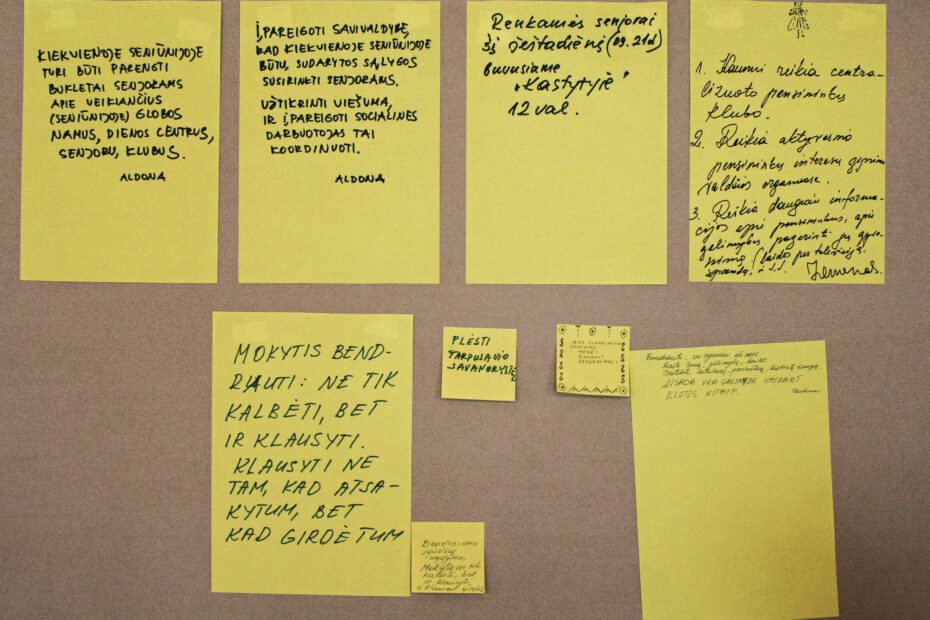Edita Šatienė, Chair of Seniors Initiatives Centre
The Lithuanian report for the compendium is based on the desk research of 21 reference source and interviews of 14 older persons, 12 women and 2 men aged from 67 to 87 years. Geographically the interviewees come from two biggest cities Vilnius and Kaunas and one regional city Alytus; therefore, only the ageism related experiences of urban inhabitants are represented. There is a significant difference between the living conditions, health care and other services in the cities, regional towns and rural areas. For example, city dwellers have easier access to all medical and banking services; they can find and get information (legal, insurance, etc.) easier. Therefore, the information obtained from the interviews is not sufficiently representative.
The interviewed persons did not use the words “ageism” or “discrimination” explicitly, but the aspects of ageism were implicitly revealed by other words, such as “exclusion”, “lack of tolerance”, “indifference”, “rudeness”, “deprivation”, “reticence”.
The desk research revealed two acute ageism approaches that need immediate actions. One issue is the explicit ageism embedded in the legislation, namely in the Law on Civil Service and the orders of the Minister for Health on specific disease prevention programmes. Another issue is the underdeveloped geriatric medicine and lack of geriatric doctors in Lithuania. Chronic diseases and comorbidities in older age patients is both a medical and a social case and the family doctor is unable to deal professionally with these matters. Changes of these matters require political decisions, which will not be taken without the active engagement of well-informed citizens. Targeted education programmes can help to raise awareness about these issues and strengthen the willingness of older persons to more actively require for the services that are relevant to their circumstances.
A pleasant surprise from the desk research was that some older people do recognise age discrimination and report the cases to the Office of Equal Opportunities Ombudsperson (OEOO). In 2021 the OEOO analysed 18 claims related to age discrimination. With greater awareness of ageism more cases reported to and analysed by the OEOO can be expected.
No educational offers on how to tackle ageism were found during the desk research. As one interviewee mentioned a task related to age discrimination in the team building training in her institution, we may presume that ageism might be covered to some extent in some corporate training programmes. However, it was not possible to find specific ageism related educational programmes by means of desk research. The only example found by internet search was the Equal opportunities and non-discrimination alphabet for employees, an interactive online course on the topic of discrimination in labour market with lesson 9 dedicated specifically to age discrimination.
Work on the report, the interviews, discussions with colleagues and stakeholders sparkled interest in the findings and next steps of the project, so everybody is looking forward to the project outputs that will follow.
